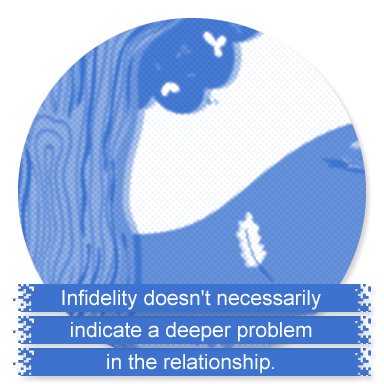Married people who cheat don't often regret it
Infidelity survey uncovers high satisfaction and minimal remorse in cheating spouses.

Summary
The study surveyed Ashley Madison users to explore the psychology behind infidelity, discovering that cheating spouses often find affairs satisfying and express minimal remorse. The research challenges conventional notions of infidelity, suggesting more complex motivations and experiences.

Introduction
A new report examining the psychology of infidelity finds that married individuals who have affairs experience high satisfaction and express little remorse, often believing their actions don't harm their marriages. The study, conducted with nearly 2000 active users of Ashley Madison, provides a fresh perspective on the subject.
Main points
- Participants report high levels of love for their spouses and low levels of sexual satisfaction.
- Sexual dissatisfaction is the primary motivation to cheat, not issues with the overall relationship.
- The majority of respondents did not regret their affairs and found them satisfying both sexually and emotionally.
- Infidelity isn't necessarily tied to deeper relationship problems but a desire for novelty and excitement.
- Maintaining monogamy is challenging even in satisfactory relationships.

Conclusion
The study presents a nuanced view of infidelity, indicating a divergence from conventional beliefs about motivations and experiences of cheating spouses. While this doesn't negate the implications of infidelity on relationships, it highlights the complexity of the issue and the need for further research.
Primary perspectives
In popular media, television shows and movies and books, people who have affairs have this intense moral guilt and we don't see that in this sample of participants. Ratings for satisfaction with affairs was high -- sexual satisfaction and emotional satisfaction. And feelings of regret were low. These findings paint a more complicated picture of infidelity compared to what we thought we knew. - Dylan Selterman, associate teaching professor in Johns Hopkins University's Department of Psychological & Brain Sciences
Original source
Materials: Johns Hopkins University
Original author: Jill Rosen
Note: text modified for style and brevity
Date: May 2023

 vneo
vneo 











